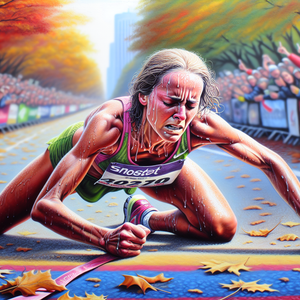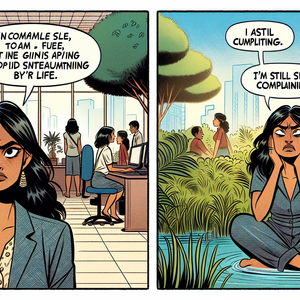Unpacking the Pay Gap in Women's Sports

Understanding the pay gap in women's sports necessitates an exploration of its historical roots. The WNBA was established in 1996, during a period when women's sports were still striving for recognition and legitimacy. In contrast, the NBA, founded in 1946, had over four decades to cultivate a robust fan base and financial infrastructure. This head start has resulted in deeply entrenched financial disparities that remain challenging to dismantle. As of 2023, the average salary for a WNBA player hovers around $120,000, while NBA players earn an average of more than $8 million. This staggering difference underscores not only the existing pay gap but also the systemic issues that perpetuate it. Cultural perceptions that women are less capable athletes, combined with insufficient media coverage and investment, have historically marginalized women's sports, leading to lower viewership and sponsorship opportunities.
Cultural Perceptions and Their Impact on Financial Support
Cultural perceptions significantly influence the financial landscape of women's sports. Many individuals still cling to outdated beliefs that women's sports lack the entertainment value or competitiveness of men's sports. Such stigmas are exacerbated by media representation, which often prioritizes male athletes and their achievements while neglecting their female counterparts. For example, despite the remarkable performances and achievements of WNBA players, media coverage remains disproportionately lower than that of the NBA. This lack of visibility has dire consequences for financial support in women's sports. Brands and sponsors are less inclined to invest in leagues that do not receive adequate media exposure, creating a vicious cycle. Without substantial financial backing, leagues like the WNBA struggle to provide competitive salaries, ultimately affecting player recruitment and retention.
Case Studies of Impactful Athletes
Despite the challenges presented by the pay gap, several WNBA players have emerged as powerful advocates for change, using their platforms to challenge the status quo. A prime example is Maya Moore, a two-time WNBA champion who took a hiatus from basketball to focus on social justice issues. Her activism not only garnered national attention but also underscored the disparity in treatment and compensation faced by women athletes. Another noteworthy figure is Sue Bird, a long-time player and advocate for the WNBA. Bird has been vocal about the necessity for equitable pay and her career, alongside her outspoken nature, has helped draw attention to the economic inequalities within women's sports. Through her efforts, she has encouraged fans and sponsors to rethink their perceptions regarding women's athletics.
The Role of Activism and Advocacy
Activism has become an essential component in the ongoing fight for equitable pay in women's sports. The WNBA Players Association (WNBA PA) has been at the forefront of negotiating better salaries and working conditions for players. Their efforts culminated in a historic collective bargaining agreement in 2020, which included increased compensation, improved travel arrangements, and enhanced maternity benefits. Social media has further empowered athletes to share their stories and mobilize support. Players like Breanna Stewart and Diana Taurasi have leveraged their platforms to advocate for pay equity, inspiring younger athletes to continue the fight. This grassroots movement is pivotal in altering cultural perceptions and garnering support for women's sports.
The pay gap in women's sports, particularly in the WNBA, is a multifaceted issue rooted in historical, cultural, and societal factors. While significant strides have been made in recent years through activism and advocacy, particularly with the 2020 collective bargaining agreement, there remains a long journey ahead in achieving true equity. By unpacking the factors that contribute to the pay gap, we can better understand the challenges faced by women athletes and the importance of advocating for their rights and recognition. Only through collective efforts can we hope to close the pay gap and ensure that female athletes receive the compensation and respect they deserve. The fight for equity in women's sports is not just about salaries; it is about valuing female athletes for their contributions to the world of sports, their dedication, and the barriers they continue to overcome.
Sports Marketing Manager
WNBA, NCAA, sports marketing agencies
Job Description
Develop and implement marketing strategies to promote female athletes and women's sports leagues.
Collaborate with sponsorship teams to secure partnerships and increase brand visibility.
Analyze market trends and fan engagement to optimize promotional campaigns.
Unique Skills
Proficiency in digital marketing and social media analytics
Experience in gender equity initiatives in sports
Athlete Relations Specialist
Professional sports teams, athletic associations, sports agencies
Job Description
Serve as the primary liaison between athletes and the league or organization, focusing on their needs and advocacy.
Coordinate communication regarding contracts, sponsorships, and public relations efforts.
Facilitate opportunities for athletes to engage in community outreach and activism.
Unique Skills
Strong interpersonal communication
Background in sports management or counseling
Knowledge of athlete rights and advocacy
Sports Journalist (Women’s Sports Focus)
Sports media outlets, online publications, newspapers
Job Description
Cover news, interviews, and events related to women's sports, ensuring equitable representation.
Research and write in-depth articles that highlight the achievements and challenges of female athletes.
Use digital platforms to engage audiences and promote women's sports stories.
Unique Skills
Experience in sports writing
Strong understanding of social media engagement
Commitment to gender equity in sports journalism
Gender Equity Consultant in Sports
Non-profit organizations, sports governing bodies, consultancy firms
Job Description
Advise sports organizations on strategies to promote gender equity in pay and treatment of athletes.
Conduct assessments of current policies and practices, providing recommendations for improvement.
Facilitate workshops and training sessions focused on diversity and inclusion in sports environments.
Unique Skills
Expertise in diversity, equity, and inclusion (DEI) frameworks
Background in law or social justice advocacy
Strong analytical skills
Sponsorship and Partnership Manager
Sports leagues, marketing firms, non-profit organizations focused on women’s sports
Job Description
Identify and cultivate relationships with potential sponsors who align with women's sports initiatives.
Develop sponsorship proposals that highlight the value of investing in women athletes and leagues.
Monitor and evaluate partnership success, providing insights for future sponsorship strategies.
Unique Skills
Excellent negotiation and communication skills
Experience in sponsorship sales and marketing
Understanding of gender dynamics in sports marketing


